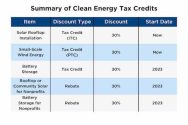
Campaigning For UK Solar Owners Underpaid By Utility Companies

The London Times has exposed shockingly low rates paid by some Utility companies for surplus PV power generated by their customers. And Solar panel owners are comparing ways to claw back some of the money.
Suppliers charge 34p per kWh — but pay as little as 1p for the electricity they buy from householders, despite higher energy prices.
One reader on the web site says: “Ofgem should make it mandatory that the energy companies pay for export at a similar price as the import price, similar to octopus flex tariff.
You can get together with other off-grid subscribers to start your own local community energy company. Go to the Off-Grid Map Page to get started.
“If Government really want to support and promote Roof solar panels there should be net metering and stop all the noise about batteries etc, consumer pays the same price for export and import. In Australia two third households have solar panels whereas in UK it’s 10%.”
And another readers adds: “Only in the UK are you ripped off ! In France and Germany excess solar power is banked so acting as virtual batteries. You pay a nominal sum to get it back. In Spain price reduction/ subsidies can be as high as 60% for pv and battery.”
the precise way UK consumers can fight back against the rip-off Utility companies is complicated. you can buy cheaply between midnight and 06:30 and sell back anything unused and not needed for the following day. The differential between “buying cheap” and “selling dear” are fairly constant and do not appear to be markedly affected by the Ukraine situation.
“The best sell-back prices are usually between 16:00 and 19:00, says another reader. “There are apps that automatically manage the process, including the weather forecast for you precise location so you will know how much solar you should have). This allows a degree of automation as to what to buy and sell. It is a real eye-opener. My 4.2kWp Solar PV and 12.8kWh battery storage system is being installed this week. Cannot wait. The economics are transformed by the “agile” rates.”
However, the government did not set a minimum that suppliers that have to pay. E, which has about 300,000 customers, pays the lowest at 1p per kilowatt hour (kWh) exported, according to the website Eon and EDF pay 3p per kWh, although they have better rates if you also buy energy from these suppliers.
A typical 3.5kW solar system costs about £5,500, and this would produce about 2,646 kWh a year, although it depends on your location and the weather.
If you don’t have a battery to store your electricity (they cost between £3,000 and £6,000) you will lose about half of it — so 1,323 kWh. That would be worth about £450 at the 34p per kWh price
